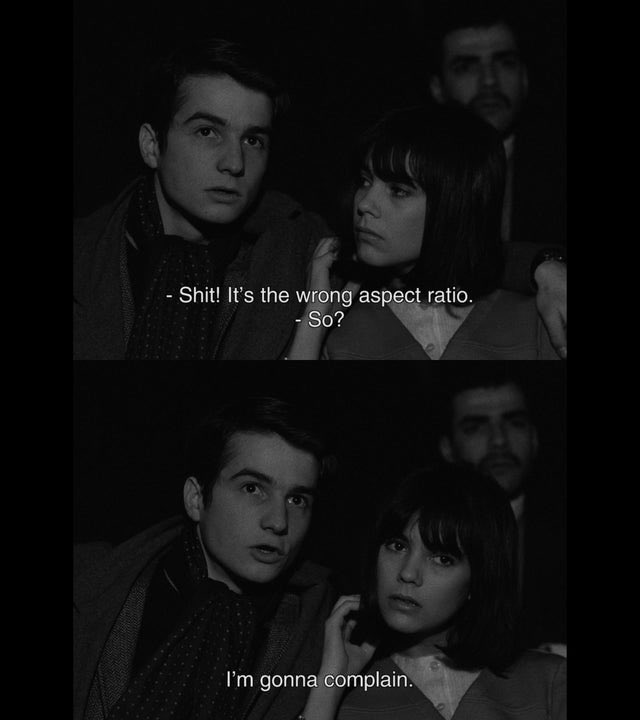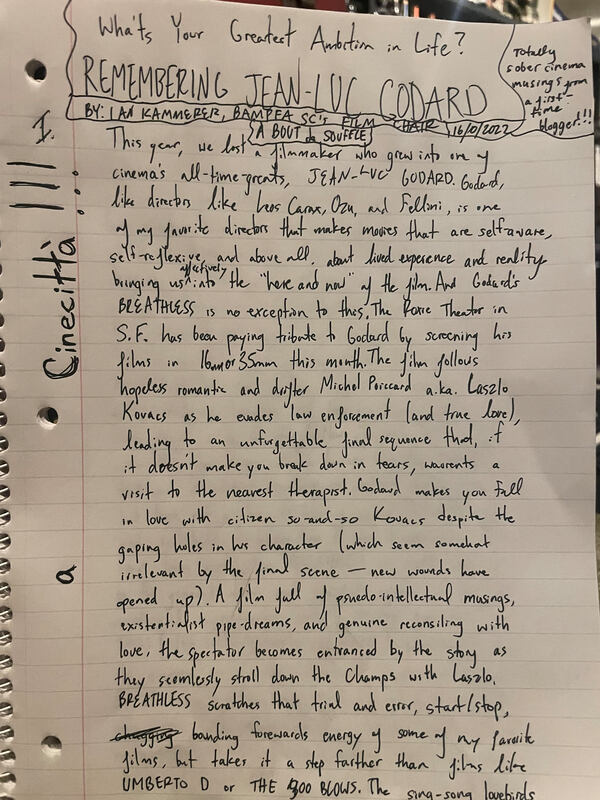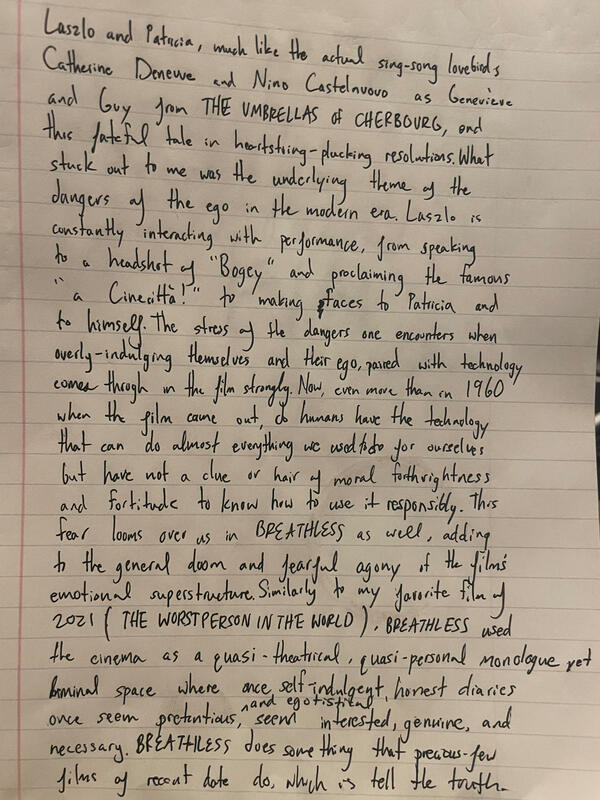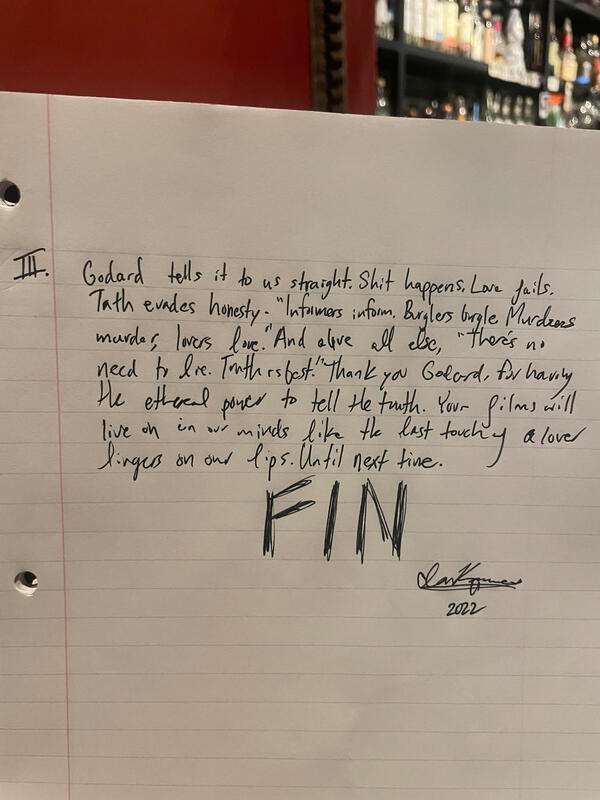~What is your greatest ambition in life? To become immortal then die~ REMEMBERING JEAN-LUC GODARD10/19/2022 totally sober musings from a first time blogger by Ian Kammerer This year, we lost a filmmaker who grew into one of cinema’s all-time greats, Jean-Luc Godard. Godard, like directors like Leos Carax, Ozu, and Fellini, is one of my favorite directors that makes movies that are self-aware, self-reflexive, and above all, about lived experience and reality, bringing us affectively into the “here and now” of the film. And Godard’s Breathless is no exception to this. The Roxie Theater in SF has been paying tribute to Godard by screening his films in 16mm or 35mm this month. Breathless follows hopeless romantic and drifter Michel Poiccard a.k.a. Laszlo Kovacs as he evades law enforcement (and true love), leading to an unforgettable final sequence that, if it doesn’t make you break down in tears, warrants a visit to the nearest therapist. Godard makes you fall in love with citizen so-and-so Kovacs despite the gaping holes in his character (which seem somewhat irrelevant by the final scene — new wounds have opened up). A film full of pseudo-intellectual musings, existentialist pipe-dreams, and genuine reconciling with love, the spectator becomes entranced by the story as they seamlessly stroll down the Champs with Laszlo. Breathless scratches that trial and error, start / stop, always bounding forwards itch of some of my favorite films, but takes it a step farther than films like Umberto D or The 400 Blows. The sing-song dialogue of Laszlo and Patricia, which like the actual sing-song lovebirds Genevieve and Guy from The Umbrellas of Cherbourg, end this fateful tale in heartstring-plucking resolutions. What stuck out to me was the underlying theme of the dangers of the ego in the modern era. Laszlo is constantly interacting with performance, from speaking to a headshot of “Bogey” and proclaiming the famous “a Cinecittà!” to making faces in the mirror to Patricia and himself. The stress of the dangers one encounters when overly-indulging in themselves and their ego, paired with technology comes through in the film strongly. Now, even more than in 1960 when the film came out, do humans have the technology that can do almost everything we used to do for ourselves but have not a clue or hair of moral forthrightness and fortitude to know how to use it responsibility. This fear looms over us in Breathless, adding to the general doom and agony of the film’s emotional superstructure Similar to my favorite film of 2021, The Worst Person in the World, Breathless uses the cinema as a quasi-theatrical, quasi-personal monologue yet liminal space where once self-indulgent diaries seemed pretentious and egotistical, now seem interested, genuine, and necessary. Breathless does something that precious-few films of late do, which is to tell the truth. Godard tells it to us straight. Shit happens. Love fails. Truth evades honesty. “Informers inform. Burglars burgle. Murderers murder. Lovers love.” And above all else, “There’s no need to lie. Truth is best.” Thank you Godard, for having the power to tell the truth. You have become immortal to us through your films, which will live on in our minds like the last touch of a lover lingers on our lips. Until next time.
FIN
0 Comments
Leave a Reply. |
Archives
March 2024
Writers
All
|



